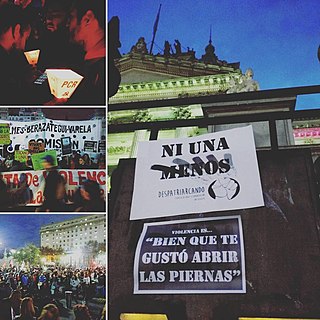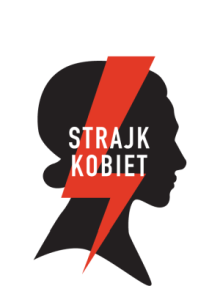Public opinion on abortion has changed dramatically in Ireland. Abortion in Ireland is regulated by the Health Act 2018. Abortion is permitted in Ireland during the first twelve weeks of pregnancy, and later in cases where the pregnant woman's life or health is at risk, or in the cases of a fatal fetal abnormality. Abortion services commenced on 1 January 2019, following its legalisation by the aforementioned Act, which became law on 20 December 2018. Previously, the 8th Constitutional Amendment had given the life of the unborn fetus the same value as that of its mother, but the 36th constitutional amendment, approved by referendum in May 2018, replaced this with a clause permitting the Oireachtas (parliament) to legislate for the termination of pregnancies.
The Eighth Amendment of the Constitution Act 1983 was an amendment to the Constitution of Ireland which inserted a subsection recognising "the equal right to life of the pregnant woman and the unborn". Abortion had been subject to criminal penalty in Ireland since at least 1861; the amendment ensured that legislation or judicial interpretation would be restricted to allowing abortion in circumstances where the life of a pregnant woman was at risk. It was approved by referendum on 7 September 1983 and signed into law on 7 October 1983. In 2018, it was repealed by referendum.
Abortion in Poland is illegal except in cases where the pregnancy is a result of a criminal act or when the woman's life or health is in danger. The last change in the Act on Pregnancy Planning of the Republic of Poland took place on 27 January 2021, when publication of the judgment of the Polish Constitutional Tribunal in the Dziennik Ustaw RP took place.
Feminism has played a major role in shaping the legal and social position of women in present-day Ireland. The role of women has been influenced by numerous legal changes in the second part of the 20th century, especially in the 1970s.

Pro Life Campaign (PLC) is an Irish anti-abortion advocacy organisation. Its primary spokesperson is Cora Sherlock. It is a non-denominational organisation which promotes anti-abortion views, and opposes abortion in all circumstances, including cases of rape and incest.

Youth Defence is an Irish organisation that opposes legalisation of abortion. It was founded in 1986, lay dormant, and was reformed in 1992 following the judgment in the X Case. It shared offices with the Eurosceptic group Cóir, but is not openly aligned to any specific political party. It is linked to neo-fascist organisations in Italy, Germany and Great Britain.

Abortion-rights movements, also self-styled as pro-choice movements, are movements that advocate for legal access to induced abortion services, including elective abortion. They seek to represent and support women who wish to terminate their pregnancy without fear of legal or social backlash. These movements are in direct opposition to anti-abortion movements.

Savita Halappanavar was a dentist of Indian origin, living in Ireland, who died from sepsis after her request for an abortion after a prolonged miscarriage was denied on legal grounds. In the wake of a nationwide outcry over her death, Irish voters passed in a landslide the Thirty-Sixth Amendment of the Constitution, which repealed the Eighth Amendment and empowered the Oireachtas parliament to make abortion legal. It did so through the Health Act of 20 December 2018.

Ni una menos is a Latin American fourth-wave grassroots feminist movement, which started in Argentina and has spread across several Latin American countries, that campaigns against gender-based violence. This mass mobilization comes as a response to various systemic issues that proliferate violence against women. In its official website, Ni una menos defines itself as a "collective scream against machista violence." The campaign was started by a collective of Argentine female artists, journalists and academics, and has grown into "a continental alliance of feminist forces". Social media was an essential factor in the propagation of the Ni Una Menos movement to other countries and regions. The movement regularly holds protests against femicides, but has also touched on topics such as gender roles, sexual harassment, gender pay gap, sexual objectification, legality of abortion, sex workers' rights and transgender rights.
The Abortion Rights Campaign (ARC) is an Irish abortion rights group. The group's goal is the introduction of free and legal abortion in Ireland and Northern Ireland. Prior to May 2018, the group campaigned for the repeal of the Eighth Amendment of the Irish Constitution, which was achieved with the passing of the Thirty-Sixth Amendment 2018. The ARC also campaigns for the Northern Ireland Assembly on behalf of abortion legislation and "to ensure the health of women in pregnancy is protected in line with international human rights standards".
The Citizens' Assembly is a citizens' assembly established in Ireland in 2016 to consider several political questions including the Constitution of Ireland. Questions considered include: abortion, fixed term parliaments, referendums, population ageing, and climate change. Over 18 months a report is produced on each topic. The government is required to respond officially to the reports in the Oireachtas (parliament); as of 9 April 2019 responses have been given on three of the five topics.
Cora Sherlock is a writer, blogger and campaigner in the Irish anti-abortion movement. She is deputy chairperson of the Pro Life Campaign. In 2014, she was included in BBC's 100 Women series.

A Day Without a Woman was a strike action held on March 8, 2017, on International Women's Day. The strike, which was organized by two different groups—the 2017 Women's March and a separate International Women's Strike movement—asked that women not work that day to protest the policies of the administration of Donald Trump. Planning began before Trump's November 2016 election. The movement was adopted and promoted by the Women's March, and recommended actions inspired by the "Bodega Strike" and the Day Without Immigrants.

Together for Yes (TFY) is an abortion rights campaign group in Ireland. It campaigned successfully for a Yes vote in the 2018 referendum to ratify the Thirty-sixth Amendment, which removed the Eighth Amendment's constitutional ban on abortion in Ireland.
Events during the year 2018 in Ireland.

The Thirty-sixth Amendment of the Constitution of Ireland is an amendment to the Constitution of Ireland which permits the Oireachtas to legislate for abortion. The constitution had previously prohibited abortion, unless there was a serious risk to the life of the mother.

50,000 Secret Journeys is an Irish documentary made by Fintan Connolly and Hilary Dully for RTÉ One in 1994. The documentary comprised interviews with three Irish women about their experiences of abortion. The 25-minute film was interspersed with news archive footage giving historical context to the abortion debate in Ireland.

Human rights in Ireland are protected under the Irish Constitution and European provisions. Since 2014 the Irish Human Rights and Equality Commission has overseen human rights in the republic. Human rights issues in the country that have raised concern include abortion rights, child abuse, and human trafficking.

The All-Poland Women's Strike or Polish Women's Strike is a women's rights social movement in Poland, established in September 2016. It was set up in protest against the rejection by the Sejm of the Polish Parliament of the bill "Save Women", which was considered by the Sejm in parallel to the project "Stop Abortion". The movement was responsible for the organization of Black Monday, a protest action, involving various forms of strike, that took place simultaneously in 147 Polish cities, towns and villages.












